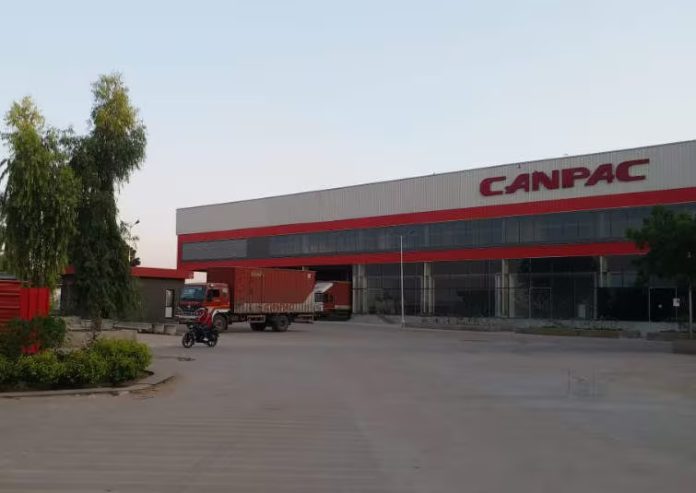
Canpac Trends, the Ahmedabad-headquartered multilocational packaging company that focuses on folding cartons, corrugated cartons, flexible packaging, paper bags, and luxury boxes, is promoting the appropriate paperization of a variety of product packaging to be seen as a sustainable and responsible supplier.
Canpac Trends is in the news over reports of divestment of stake in the company to the State Bank of India (SBI) and asset management firm Investcorp. The State Bank of India has acquired a 6.35% stake in Canpac Trends PL for Rs 49.9 crore for an approximate overall valuation of Rs 785 crore, according to the Business Line daily of 15 December 2023 and other media reports. The bank has stated that the investment in Canpac is aimed at capital appreciation and the deal is expected to conclude within three months.
Another story in the Mint dated 15 December 2023, which was followed up by other business publications, speaks of Bahrain-based Investcorp investing US$ 41 million (approximately Rs 340 crore) in Canpac Trends for a significant stake in the company when the deal closes. The investment apparently provides a partial exit to JM Financial India, which invested in Canpac in 2021. The transaction is said to include over Rs 100 crore of primary capital infusion into Canpac. With the additional capital, the packaging company is planning to add new geographical locations, including North India, and considering both organic and inorganic growth.
Businessline quoted Nilesh Todi, founder of Canpac Trends, as saying, “This investment comes at a vital point in our growth journey as we continue to expand our presence across India. This funding round will help us scale up our manufacturing and sales capabilities.”
A push for sustainability and paperization
In Packaging South Asia’s recent interaction with Raag Todi, junior director, of Canpac at the company’s office in Ahmedabad, we were briefed on the company’s new emphasis on eco-friendly paper packaging and its movement towards plastic-free solutions. Citing paper packaging as a major trend in the industry, he highlighted the fact that brands must play a vital role in convincing customers to go for paper instead of another form of packaging.
“We being a third-party manufacturer of paper bags, corrugated cartons, folding cartons, and many other paper-based packaging products, can only promote it to our clients. The brands need to play a bigger role in this sustainability market,” Todi said. One of the steps towards sustainability is Canpac’s own R&D team dedicated to exploring barrier coatings for food packaging that are not only safe and hygienic but also free from plastic components.
Showing an example of a laminated duplex board converted to a folding box board (FBB), Todi acknowledged the challenges associated with polyester laminated packaging – particularly the difficulty of segregating the film from the paper in India’s current waste management scenario. However, Canpac is trying to achieve similar impact and quality using printing technologies that can make cartons sustainable without lamination. “Although there will be some differences, the aesthetics and impact will be largely preserved.”
Todi talked about India’s waste management landscape during our interaction. He highlighted the need for efficient waste segregation processes and advanced recycling plants. According to him, proper segregation and recycling of waste are crucial for sustainable practices. Although he appreciated the existing practice of burning waste for power generation, he pointed out its adverse environmental effects as well.
Economics behind sustainability
Discussing consumer behavior in India, Todi shed light on the nuanced relationship between sustainability and price sensitivity. According to him, a certain segment of the Indian population is willing to embrace sustainable choices, understanding the long-term benefits for the environment, but a significant portion remains hesitant due to financial constraints. “Here the brand’s role comes into play in spreading awareness about sustainability. They need to bridge the knowledge gap and inspire more consumers to prioritize eco-friendly options,” says Todi.
He believes that brands that promote themselves based on sustainability are willing to pay a more for recyclable packaging, but there are others who want sustainability to be as economical as their earlier packaging choices. “If we talk about the willingness to go into sustainability, the consumer product companies are first looking at the economics.” What Todi didn’t say is that not all brands have taken into account the penalties that the government has mandated for using non-recyclable packaging in its Extended User Responsibility clauses of the Plastic Waste Managment Rules effective 1 July 2022.











